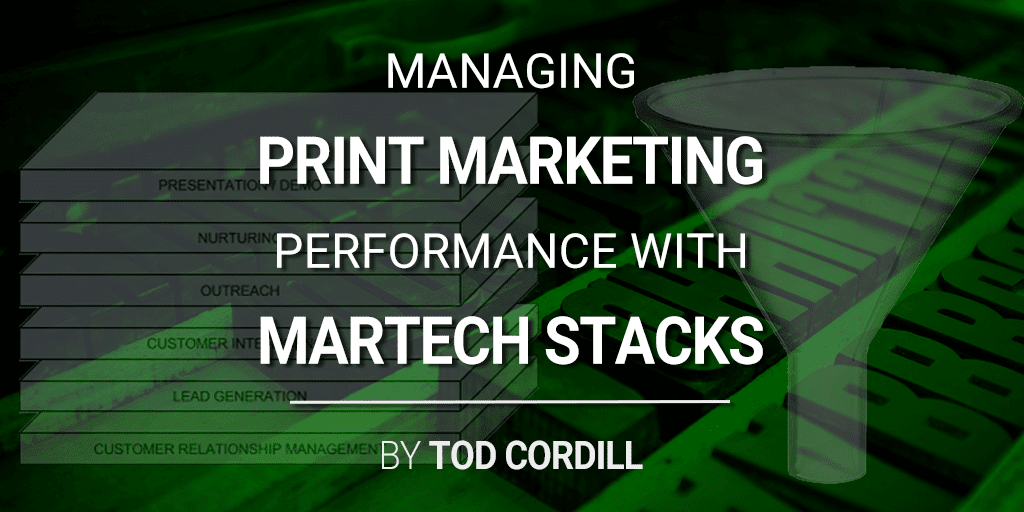
The guys over at chiefmartec have been tracking marketing technologies since 2011. Over that time their list of marketing tech solutions has grown from 150 to over 7,000. That’s 7,000 solutions out there competing for a piece of the marketing budget.
This presents a problem for any company:
What solutions should I buy so I’m not left behind by my competitors?
For companies that provide marketing services, like most commercial printers out there, it presents another problem:
How do I compete with these solutions and get a share of the marketing budget?
What is a MarTech Stack?
A MarTech Stack is the combination of technologies that a company uses for it’s marketing processes. On the surface it might seem normal to have a few applications, like your website and a CRM (Customer Relationship Management) system that’s connected to an email service provider. But once you dig into the details you realize there’s a number of tools that you’re likely using.
There’s a lot of overlap between sales and marketing technologies, so we’ll be looking at both as a single technology stack.
Sales and Marketing Technologies
Here’s the latest chart that ChiefMartech puts together every year.
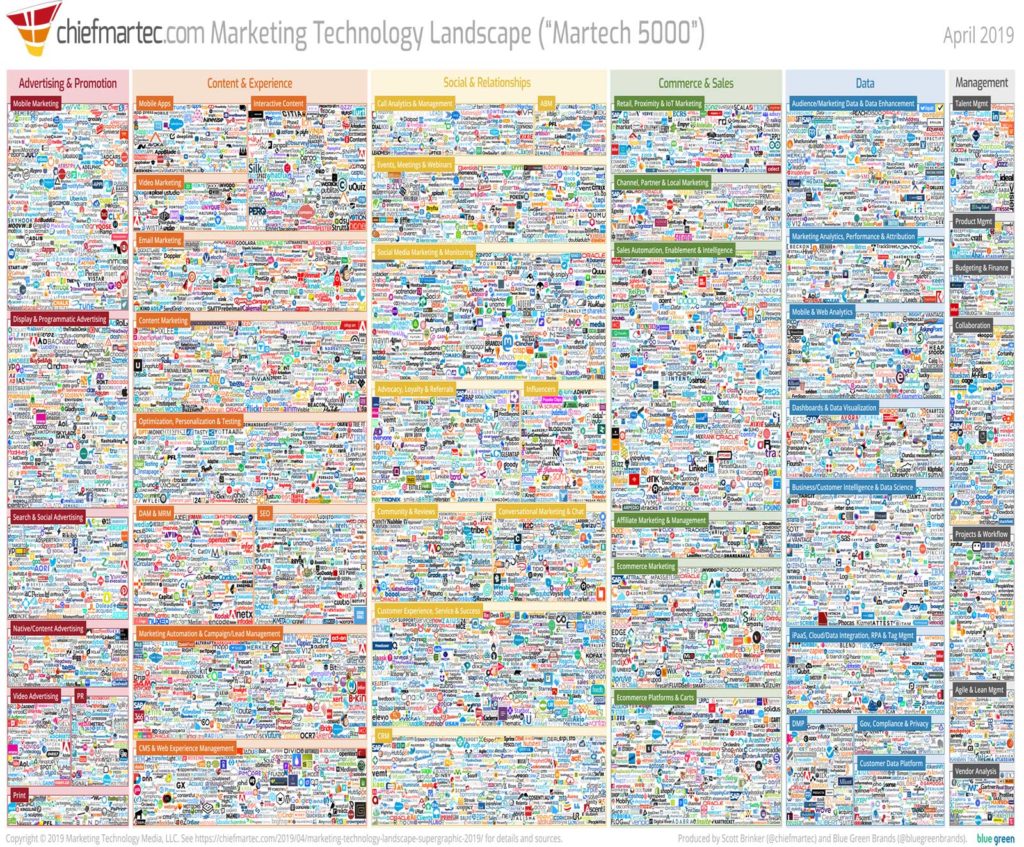
Source: Marketing Technology Landscape Supergraphic (2019)
All of these technologies are competing for limited marketing budgets.
A little closer to home, in the lower left corner of the diagram are printing related technologies and services.

These print “technologies” are a mix of technologies that you can put to use in your business and competing company solutions. The good news is that Print has a set at the marketing technology table.
A Typical MarTech Stack
There are many ways you can categorize and organize the technologies that go into your technology stack. Here’s one way to categorize your stack and a list of representative solutions that might be used by a B2B mid-sized company.
- Creating: Office, G Sutie, Adobe Suite, Canva
- Managing & Collaborating: Trello, slack, Google Drive, Dropbox, Buffer, Hootsuite, join.me, Skype
- Publishing: WordPress, Twitter, Facebook, LinkedIn, Instagram, YouTube, Vimeo
- SEO: SEMRush, Moz, Yoast
- Advertising: Bing Ads, Google Ads, Facebook Ads
- Identify: Zoominfo, LinkedIn
- Email and Marketing Automation: Act-On, Drip, Marketo, MailChimp,
- Sales & Service: Nimble, Salesforce, Zendesk, Zoho, Gmail, Outlook, DocuSign
- Optimization & Personalization: ClickFunnels, Demandbase, Leadpages, Logic Hop, Optimizely
- Insights/Analyzing: Google Analytics
Why it Matters
Marketing teams have never had a wide range of tools and marketing channels to reach and engage customers. I’m sure you recognize, and use, many of the technologies listed above. These all compete for limited time and budget resources.
It is far from doom and gloom for today’s printer, however. Marketing departments budgets have increased to accommodate new technologies. In fact, Gartner predicts that marketing departments are spending more on technology than IT.
It is important to understand where print fits in this new landscape. I’ve written several articles on Print Media Centr that can help you with this.
All sales and marketing technologies fall into the Awareness > Consideration > Decision customer journey. Focus on how your clients help their customers move along this journey. These Five Questions that identify print solutions allow you to deliver solutions to existing problems. Direct mail can help with email problems that occur when email loses its effectiveness for some prospects and customers.
One big advantage of digital marketing technologies is that marketing performance can be measured. When discussing print solutions, be sure to discuss how your customer can measure print marketing performance.


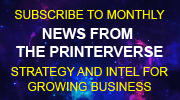
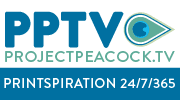
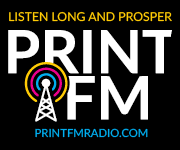
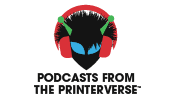
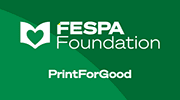

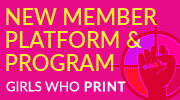
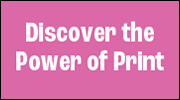

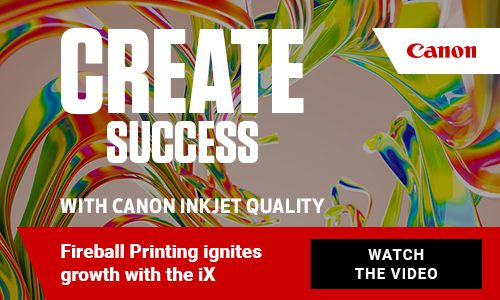
One Response
Outstanding post! Thanks for writing about martech stacks. I am also into a printing business and this information is really worth for me.